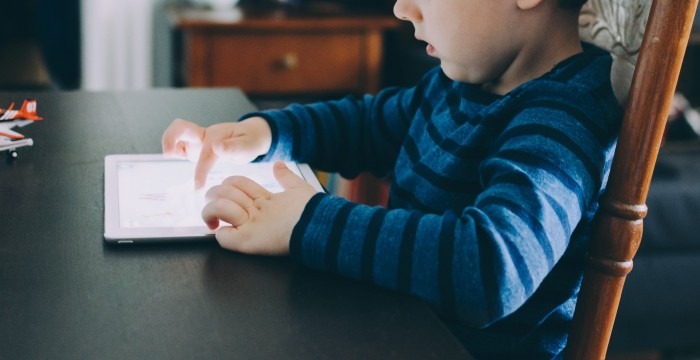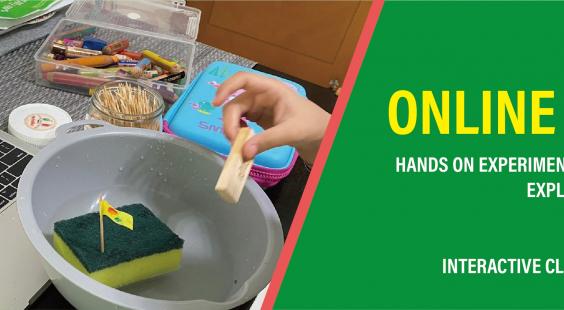
How to Keep Kids Free from Gadget-Dependency
You surely would have observed that more and more children, some starting as early as 18 months old, are getting addicted to various gadgets such as tablets, phones, and/or gaming consoles. Children as young as 2 years old are now able to swiftly use and navigate phones, find Youtube channels themselves, or click selfies. While it is indeed surprising and goes to show how much each new generation is evolving, the question remains whether it is good for our toddlers, tweens, and teens to be surrounded by touch-screen devices all the time.
What Are the Downsides?
Speech Delays
Children typically learn to talk and communicate through interactions with those around them - peers, siblings, parents, caregivers. In other words, they need people to interact with to develop speech. The more time they are glued to screen, the lesser opportunities for them to practice how to express. Research states that the more time children between the ages of 6 months and 2 years spend using handheld screens such as smart phones, tablets and electronic games, the more likely they are to experience speech delays.
ADHD and Childhood Depression
Attention deficit and hyperactivity disorder (ADHD) is a mental disorder of the neurodevelopmental type, which can occur in kids who spend a lot of time in front of screens. Excessive use of screens can make young bodies fidgety, restless and easily distracted and hence such kids are unable to focus and stay calm in classrooms or homes. Anxiety, lack of interest in learning real-life practical skills, poor eating habits, addictions to wrongful habits have also been noticed in kids dependent on gadgets. Worse still, unrestricted gadget uses also can lead to depression in children of certain ages.
Behavioral Issues
Mostly, you might have noticed that not all children programs are appropriate for kids. Plenty of unofficial cartoons or animated programs use foul language, violence in words and actions, and other unwholesome behaviors. Kids can get influenced by these shows easily and risk picking up wrong behaviors.
So yes, as parents, we can naturally get frustrated with the kind of dependency our kids have developed towards these gadgets and surely want to find ways to help them balance media use with other healthy habits/behaviors.
Let’s work together to help our kids stay healthy and happy by using the gadgets wisely; here’s a list of tried and tested methods to help kids achieve some balance with gadget usage:
1. Practice What You Preach
Children love to imitate grown-ups. It is not unusual for us to be on our laptops and phones in the presence of our children. We need to learn how to leave our mobiles, tablets aside for a few hours every day. You may consider enrolling yourselves in a new hobby class, or resuming your previous interests (which you might have developed in your school/college days) such as painting, yoga, interior decoration, cooking etc. It is imperative to show your children you have a life beyond screens too. Make sure to spend at least an hour of focused quality time with your spouse and children without any one of them being glued to screen during that time.
2. Be an Activity Creator
Deliver the message to your child that ‘free-time’ does not equal screen time. Every time your child tells you that he/she is bored and doesn’t have anything to do, do not be tempted to allow screen time. Instead, think of 5-7 new activities together and act. For instance, you can ask your kids to help with an easy supermarket chore, or they can spend the time at the park and make new friends; they can even work on changing the interiors of their rooms, work on a new puzzle, or create a new art to decorate their room’s door. The internet is blooming with such activities and more for all age-groups.
3. Be Smart About Location of Gadgets
Keep mobiles, tablets and other gadgets at a place where it is not easily accessible. What they don’t see, they don’t crave for.
4. Don’t Replace Learning with Gadgets
We sometimes make the mistake of letting our kids learn every small new stuff by having them watch videos on Youtube. However, the kids can get addicted to learning via videos only and this can certainly hamper their future reading, writing, and communicating capabilities.
5. Encourage Outdoor Activities
Ensure your kids have a good social circle around your residence. Having plenty of friends ensures that they can be out in the playground spending time with friends during ‘free- time’ instead of staying scooped up at home craving for a gadget. If possible, step out to the playground with them yourselves. If your schedule doesn’t allow, you can also enroll them to some cool interest-classes that they like.
6. Establish Ground Rules
Completely doing away with gadgets may not be entirely possible as a lot of schools now have digital homework assignments. Instead, help the kids limit their time on screens. Talk to them about to them about the amount of time they spend online and what they spend that time doing. Agree on an appropriate time they can use their device for and stick to that time. Don’t get lenient when they exceed the time-limit.
7. Create Screen-Free Zones
Ensure as a family you develop some rituals where no gadgets are permitted. This could be during meal times, before bed time, when you and kids are together in master bedroom, etc. This will encourage kids to talk more and not be absorbed in their devices all the time.
8. Ask Kids to Help with Household Chores
Divert kids’ attention by having them help with household chores like assisting with meal preparations, laying down the table, placing the dishes in the sink and running them under water, making the beds, hoovering the house, hanging the laundry to dry, etc. Not only will this give them less time to spend glued to gadgets, it will also inculcate a sense of belongingness and responsibility towards their respective families.
Remember, just like with everything else, moderation is the key. We need to raise our kids in a way they control the devices, use the gadgets responsibly and wisely, and not get controlled by them instead.








